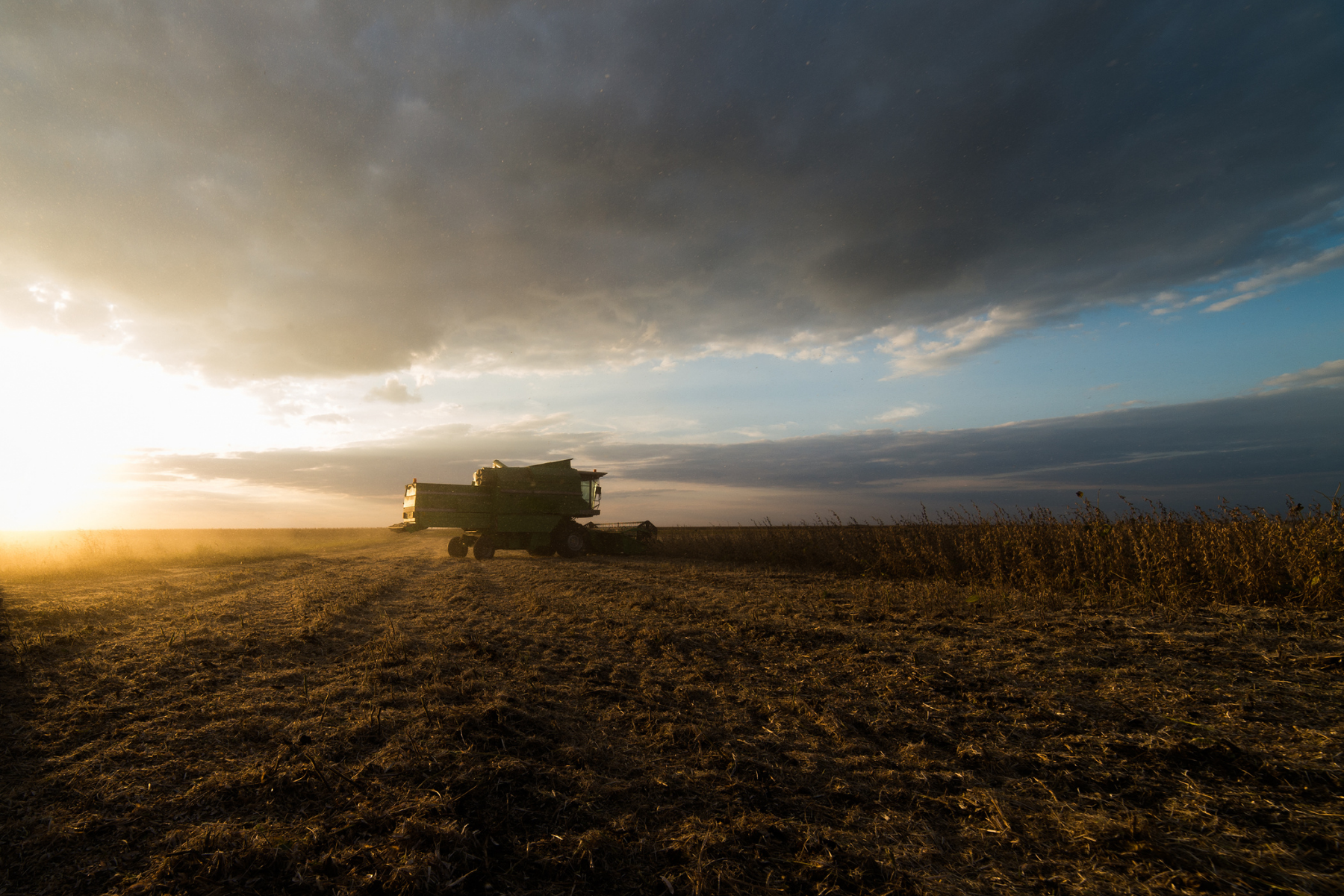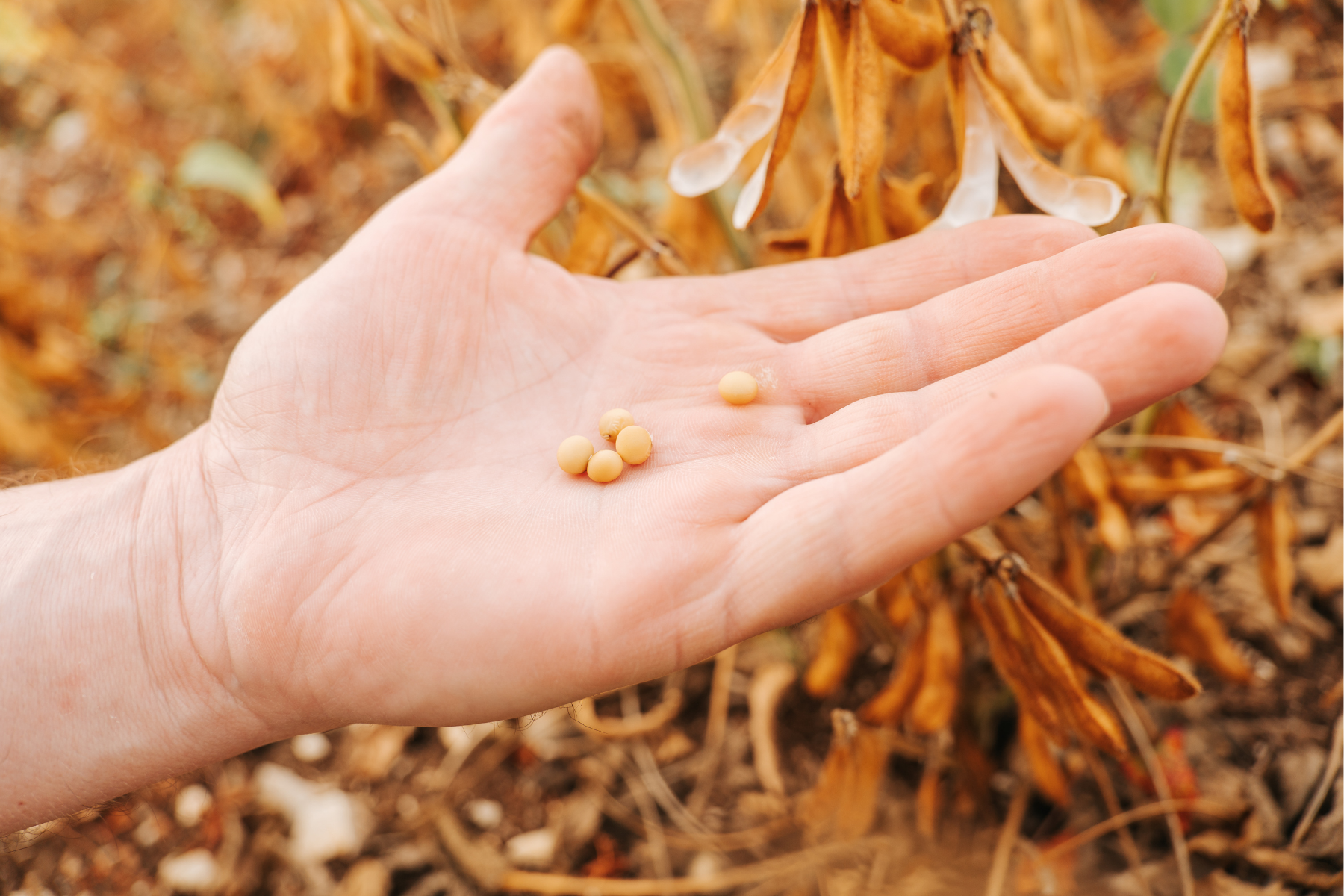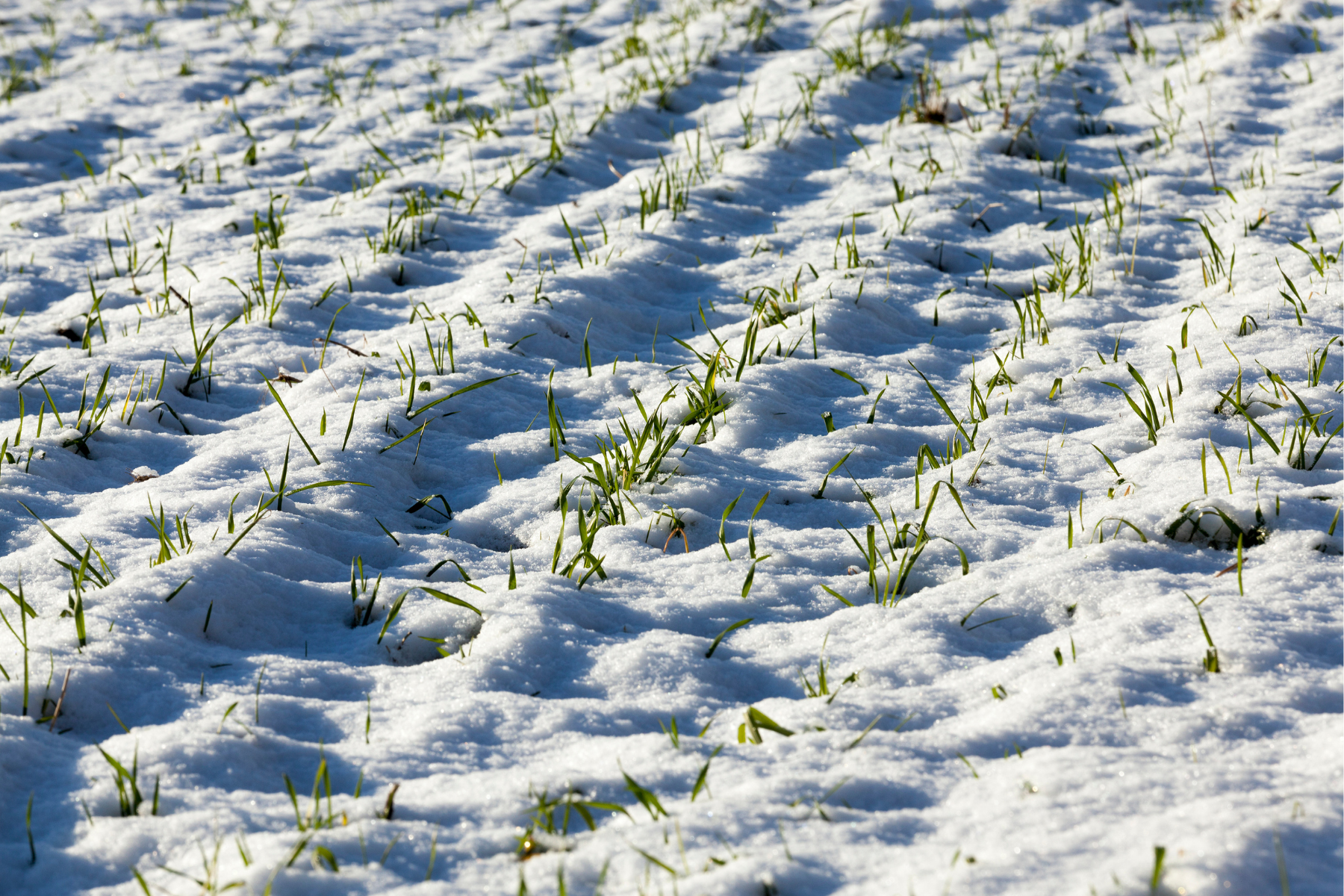At Sylvite Agri-Services, we are committed to assisting growers in optimizing their crop production through innovative solutions and expert advice. This case study focuses on a recent challenge encountered by a grower near Strathroy with no-till Identity Preserved (IP) beans. Despite initial emergence issues, the grower successfully achieved a strong stand without the need for replanting, thanks to timely intervention and effective field management.
The Situation
The grower planted no-till IP beans in a field near Strathroy. After 8 days, the beans were struggling to emerge. Upon visiting the field, our team observed that the soil surface had developed a small crust, and the seedlings were finding it difficult to break through. Upon closer examination, it was evident that the soil around the seedlings was tight and did not crumble easily when dug up. This compacted soil environment was impeding the beans’ ability to emerge effectively.
Problem Diagnosis
The primary issue identified was soil compaction. In no-till systems, soil can become compacted over time, especially when subjected to heavy machinery or lack of soil structure management. This compaction prevents adequate root expansion and seedling emergence. The small crust on the soil surface further complicated the emergence process, acting as a physical barrier for the young seedlings.
Recommended Intervention
To address the emergence issue, it was recommended the grower use a rotary hoe on the field. The rotary hoe is an effective tool for breaking soil crusts without causing significant disturbance to the soil structure. It works by gently agitating the soil surface, which helps loosen the compacted layer and facilitates seedling emergence.
Key considerations for using the rotary hoe included:
- Ensuring the “hook” on the beans (the part of the seedling that initially breaks through the soil) was not damaged during the process.
- Timing the operation before an anticipated rainfall, which would further aid in softening the soil and promoting seedling growth.
Results
The grower followed the advice and rotary hoed the field. Six days later, after a timely rain, the field showed significant improvement in bean emergence. The soil crust was effectively broken, and the loosened soil allowed the seedlings to push through more easily.
The final stand count was impressive, with 175,000 plants per acre on 15-inch rows. This stand count was within the optimal range for IP beans, ensuring good plant population density and potential for high yield.
Key Takeaways
This case study highlights the importance of timely and appropriate intervention in managing no-till systems. Soil compaction and crusting are common challenges that can hinder crop emergence, but with the right tools and techniques, these issues can be effectively managed.
The grower near Strathroy successfully overcame the emergence challenge without needing to replant, demonstrating that thoughtful field management and prompt action can lead to successful crop establishment. At Sylvite Agri-Services, we are dedicated to providing growers with the knowledge and tools they need to achieve optimal results, even in the face of challenging conditions.
Reminders
- Soil Compaction: Regular monitoring and management of soil structure are crucial in no-till systems to prevent compaction.
- Rotary Hoeing: An effective method for breaking soil crusts and aiding seedling emergence.
- Timely Intervention: Addressing emergence issues promptly can prevent the need for replanting and ensure a healthy crop stand.
- Weather Considerations: Leveraging natural events like rainfall can enhance the effectiveness of mechanical interventions.
By implementing these practices, growers can improve their crop emergence and overall productivity, ensuring sustainable and profitable farming operations.




